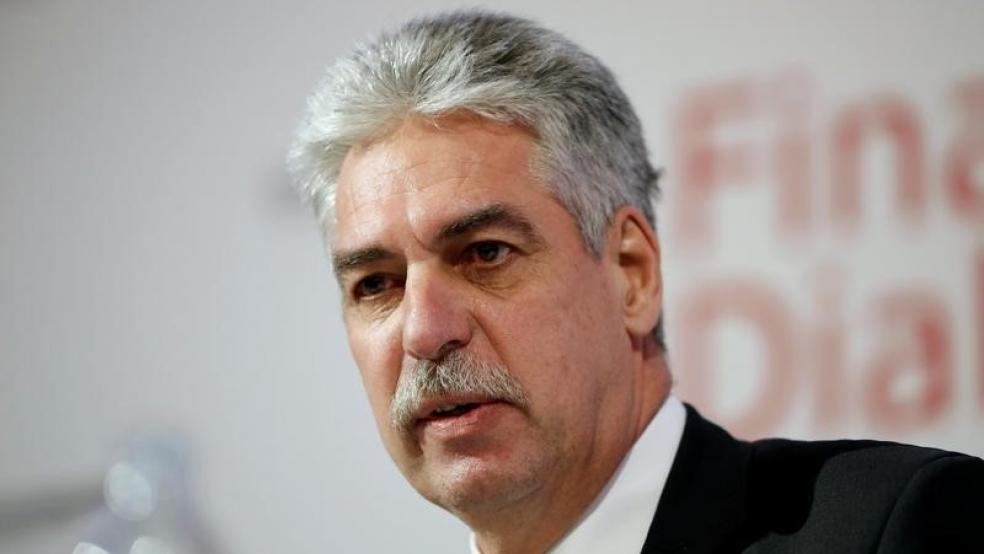LONDON (Reuters) - Deutsche Bank's troubles are not Europe's Lehman Brothers moment, Austria's finance minister said on Thursday, although he warned the region's lenders were facing a broader profitability crisis.Germany's biggest bank Deutsche has seen its value halve this year amid worries it will have to raise fresh capital to pay for a string of heavy fines, including one of up to $14 billion from the U.S., and offset a sharp fall in its revenues.It is crystallizing long-held concerns about the health of parts of Germany's banking system and as other countries in Europe continue to struggle, such as Italy where roughly a third of the loans on banks' books have problems.Asked in an interview with Reuters whether Deutsche Bank could be Europe's Lehman Brothers moment, Austrian Finance Minister Hans Joerg Schelling said: "No, it isn’t.""After the financial crisis we haven’t quite worked through the banking issues….but what I am very convinced of is that we don’t have a banking crisis, we have a profitability crisis in our banks," he said."Cost-income ratios are too high, the margins are very bad due to the very dramatic interest rate situation – the banks will have to tackle those challenges and reorganize."Lehman Brothers was the fourth-largest investment bank in the U.S. before filing for bankruptcy in 2008, the largest in the country's history, and it was the biggest victim of the U.S. subprime mortgage crisis that shook global financial markets. Schelling said Deutsche was not due to be a topic for discussion at the upcoming meeting of European finance minister, but did urge caution, saying no one would have thought the collapse of medium-sized Lehman could have triggered such a catastrophic avalanche."But that should not happen again given that we have the banking directive, the banking union, a common regulator, the single resolution mechanism, deposit guarantees set by EU rules – that means we have all measures in place on a European level to stabilize financial markets."Schelling also said euro zone governments like his should play a stronger supporting role in reviving the region's fortunes alongside the European Central Bank's more than 1.5 trillion euro stimulus program."We have to remind ourselves that monetary policy in and by itself cannot achieve the goals that we have set," he said. "Fiscal policy is an additional instrument, and we need to combine the two... But this is very, very difficult – there are a lot of holy cows for member states that no one wants to slaughter, and Europe has to decide at some stage which way it wants to go." (Editing by Susan Thomas)

